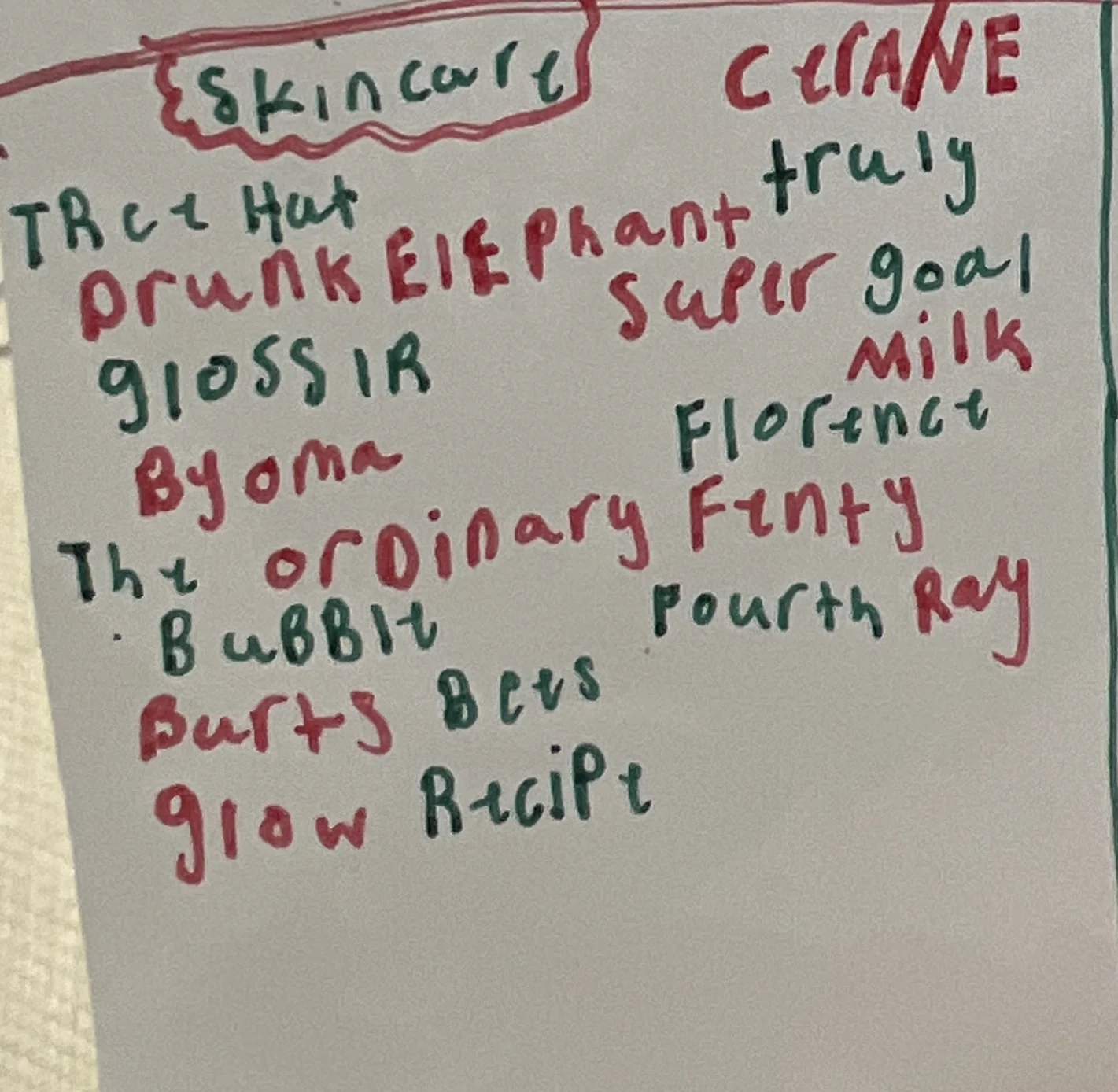Pricey skincare, bratty tones and tired Sephora testers. This combination uniquely characterizes the human products of the digital age: Generation Alpha’s preteen girls. With unrestricted and unlimited access to media and two generations’ validation, they have quickly taken over the masses.
Admittedly, it was humorous in the beginning. However, these videos on TikTok of young girls caking their face in makeup provoked a deep sense of concern in me. Was this the future of young kids growing up in an unprecedented digital era? I have never experienced the pressures of social media at such a young age, yet these girls and I were only born a couple of years apart. Where are these preteens learning about Sephora products and how to use them? What are the future repercussions? And why is this content a laughingstock instead of a cause for concern?
On January 8, 2024, I saw my first preteen “get ready with me.” The video was overwhelming to say the least, and the girl on the other side of the screen could have been no older than 11, somehow having a collection of extremely expensiveskincare and makeup products. In the beginning, she piped, “storytime!” and began whining in an effort to depict her most recent Sephora shopping experience.
Unfortunately, the store had sold out of the girl’s desired new $82 Drunk Elephant Protini Powerpeptide Resurf Serum (what a mouthful).Upon further research, I found this product under the “rid your wrinkles” section of the Drunk Elephant website. The reviews are predominantly written by women in their 40-60s, claiming this to be their “holy grail” and “the only thing that makes their skin smooth again.” The irony of an 11-year-old girl using the same products as a postmenopausal woman is uncanny.

Is there really that vast of a difference between the childhoods of people in their late teens and 11-year-olds? Surprisingly, for such a small age gap, there is.
The iPhone was introduced in Gen Z’s lifetime whereas Gen Alpha does not know a world without advanced technology and unrestricted social media. Both Gen Z and Gen Alpha lived through a global pandemic, but Gen Alpha was in their most formative years, (early elementary) while Gen Z had an elementary baseline. 54% of Gen Alpha have their own devices, 26% live in a home with a VR headset, while 37% of their parents claim their kid’s mental health is worse than theirs at the same age.
These differences mainly revolve around technology accessibility and usage, both little-researched areas that seem to have adverse developmental effects.
Generation Alpha includes all children born between 2010 and 2024, narrowly including the LWHS frosh class, but predominantly including middle schoolers and below. Generation Alpha’s parents are predominantly Millennials, a trailblazing generation while simultaneously notorious as one of the most embarrassing age groups on social media apps like TikTok and Instagram Reels (The Millenial Pause, up close and personal camera shots, speaking in the third person, etc). Millennials becoming parents in a digital age and amid a global pandemic made it no easier.
Honestly, it feels bizarre to approach the topic with a “when I was your age” perspective. The age gap between my generation, Generation Z and Generation Alpha is significantly smaller than my grandmother’s and mine in conversations about makeup and fashion trends nowadays. But there is some truth to it. In a Teen Vogue article entitled What an Actual Kid Thinks About the ‘10-Year-Olds at Sephora’ Outrage on TikTok, Fortesa Latifi, a woman in her early 20s recounts, “The only step I took toward my unlikely dream of being Britney Spears was memorizing her discography. I didn’t have access to her skin-care routine or what makeup she wore or how, exactly, she applied it.”
Angry employees secretly filming themselves at work documenting encounters with tweens and the repulsive look of Drunk Elephant testers have showcased the receiving side of the tweens backlash to the “get ready with me’s.” A frustrated Sephora employee claims, “The moral of the story is we can make all the story times in the world about how these little girls behave, but nothing is going to change until the parents change,” begging the question of who is at fault.
So, can we attribute these new developmental changes to bad parenting? Not quite, but we can attribute some fault of these new developments to helpless parenting. There is no set guidebook on parenting, and with such unlimited access to social media and other forms of the internet, parents are left defenseless. However, most of the fault is on us, the content consumer.

Double tapping and scrolling is a form of bystanding; it contributes to the problem by offering our views and likes. By creating more of a stir around the tween girls, we as consumers make their “get ready with me’s” trendy and validate their behaviors. This only encourages more kids to try and attempt to conform to the heavy makeup and high fashion look on social media, escalating the issue.
As fun as it is to watch and laugh at the ridiculousness of a 10-year-old using anti-aging cream and whining about her drama at school, the validation of older social media users only feeds this issue. We as teenagers decide trends. We decide what is funny, and what is not. And while there is no direct solution we as teenagers can offer, the best we can do is hold down the video and mark it as “not interested.”






